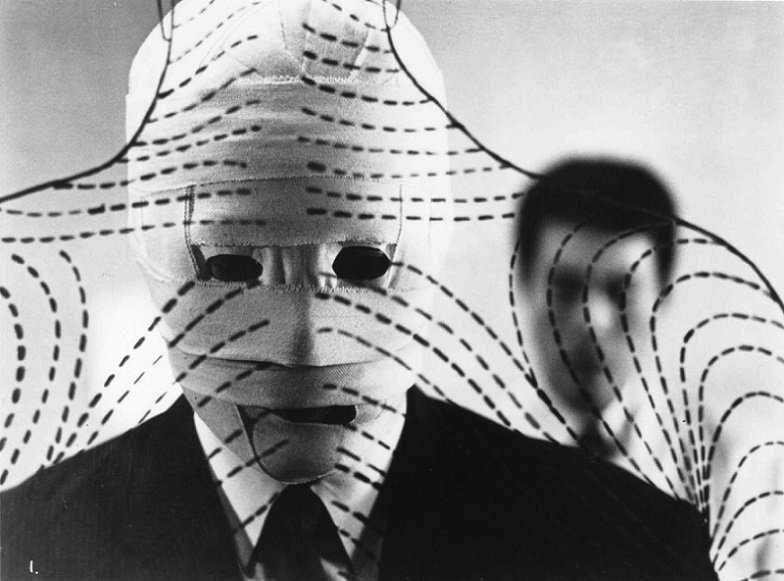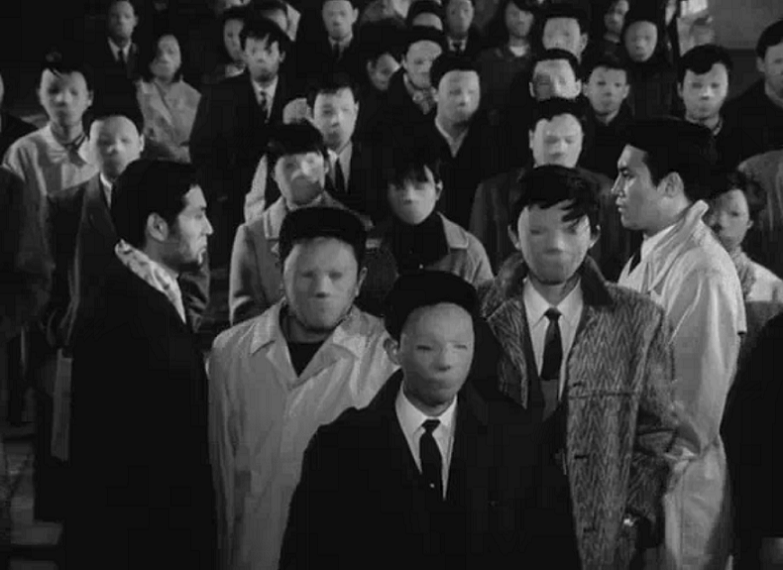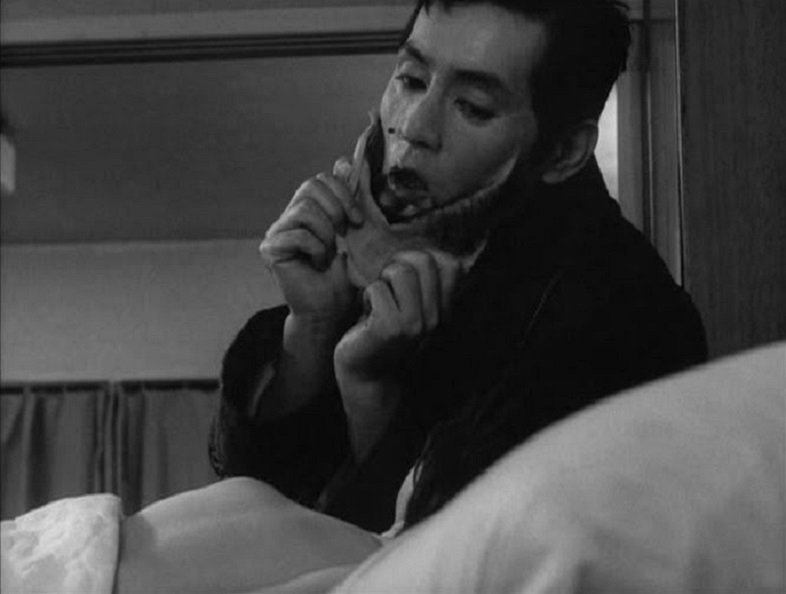Hiroshi Teshigahara's films are what you would call avant-garde and experimental, often with slight erotic undertones. Teshigahara's constant companion was the novelist Kobo Abe with his mysterious Kafka-like short stories that Teshigahara used as a basis for his films. But his films never feels overly literary; the emphasis is rather on the cinematography and the atmosphere. The electro-acoustic music of his films also contributes to the overall atmosphere and is made by one of Japan's greatest composers, Toru Takemitsu, who was another faithful companion to the director.

"Tanin no kao", or "The Face of Another" which is the international title, is a sci-fi story about a man, Okuyama (Tatsuya Nakadai), that acquire a synthetic face after disfiguring his original face in an industrial accident. The film naturally leads into an identity crisis with many interesting twists. Who he was - including what he looked like - remains non-essential throughout the film. Nothing is allowed to take focus from what follows. The accident is timely for a doctor that for a long time has been wanting to create a near human like mask. The protagonist agrees to the operation, and in exchange, the doctor gets access to the patient's psyche through psychoanalysis. Okuyama receives the new face, and his personality gradually begins to change.
The film manages to be both existentialist and accessible. It starts off as an introspective study of man's vanity and then grows into a larger and more fascinating film about man's alienation and the contradictory systems and structures of society. No one will find the course of events difficult to follow, but its meaning, you will have to design for yourself.

Amid an extensive range of people there is You. Ostensibly you're just another face in the crowd, but within yourself you know that you're a unique and complex individual with a distinctive mental architecture - in other words your personality and the ability to express it. But why did you become this particular person? Is this You something innate? Or have You been shaped by your appearance's ability to produce these qualities in the people you've met? To simplify: Are you sinister because you were born sinister? Or is it because everyone else thinks you have a sinister look? Or is it an interaction?
These are the issues that the film wants to bring to the foreground. In our society, we see tons of new people as soon as we leave the house, whose existence we'll forget as soon as we turn our attention to the next. And we become equally unimportant to them. Our only unfailing identity is our face - the person's display window to the outside world, the only thing we have to offer until someone wants to converse and get to know you better.
If we demolish the face we become startling deviations; expressionless abnormalities in a normative world. Put on a new face, perhaps one with the features of Tatsuya Nakadai, and you may become a new person. Or will you regain your old character traits?

The subject of identity is illuminated in several different contexts: appearance, social roles, relationships, etc. The film is essentially one long philosophical discussion, something that's usually more suitable for literature, but it never gets boring, much thanks to the excellent cinematography, congenial music and great acting performances. It's also very interesting to get to see Tatsuya Nakadai in something other than a samurai movie. There's a surreal side story with a young girl whose face is half deformed. The story ends with a man transforming into a big lump of meat - a wonderfully Kafkaesque sequence.

"The Face of Another" lies somewhere between the early works of Bunuel, such as "Un Chien Andalou" and "L'Age d'Or", and "Eraserhead" by David Lynch. Visually, it's one Teshigahara's greatest films, with extremely complex camera angles and ingenious solutions. It completely lacks the natural landscapes and windswept plains that are usually featured in Teshigahara's works. The urban environment of this film is almost a character in itself and fits perfectly with the cold and egocentric story. An indispensable gem of the 60's.

